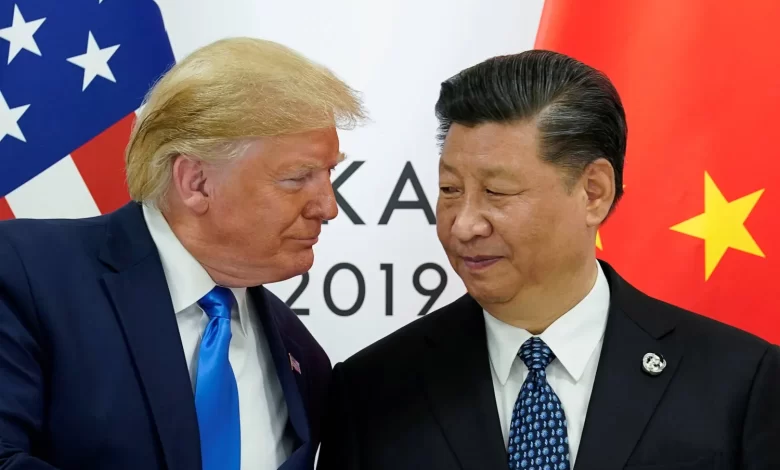InternationalNews
Pentagon Adds New Chinese Companies to Its Blacklist

The U.S. Department of Defense (Pentagon) has blacklisted the largest Chinese electric vehicle battery manufacturer and China’s largest tech company, effective June 2026. This decision prohibits these companies from contracting with the Department of Defense and sends a strong signal to American companies about potential risks associated with dealing with them.
On Tuesday, a comprehensive list was published following a preliminary version released on Monday in the Federal Register. The list includes companies that the Pentagon claims operate in the United States on behalf of the Chinese military, contribute to China’s military buildup, or serve its interests.
Tesla Batteries
For the first time, the list features “CATL,” the world’s largest electric vehicle battery manufacturer and a supplier to Tesla, the electric car company owned by Elon Musk, a close ally of former President Donald Trump. It also includes “Tencent,” China’s most valuable tech company and a major social media conglomerate.
Other significant additions to the blacklist include China’s largest commercial aircraft manufacturer, two companies specializing in surveillance technologies experiencing rapid growth in China, and “Hesai,” whose systems are used in autonomous vehicles and robotics.
The Pentagon’s decision is part of broader bipartisan efforts during the Biden and Trump administrations to curb China’s military ambitions and counter its expanding surveillance activities. However, Musk’s political rise and his substantial business interests in China may complicate the political landscape.
Securing Supply Chains
Pentagon spokesperson Selena Rodts described the new list as a “critical step in securing supply chains and removing entities that support China’s military-civil fusion strategy.”
Experts noted that including CATL is significant because its control over data collected through electric vehicle charging stations and battery management systems could potentially enable Chinese government espionage. Chinese law mandates that the company provide the government with access to all proprietary and customer data without negotiation. Integrating CATL into the U.S. power grid could increase dependency on its infrastructure, creating vulnerabilities that could be exploited to disrupt essential services. These concerns echo those previously raised regarding the deep integration of Chinese tech giant Huawei into global telecommunications networks.
Immediate Impact
Although some companies were already under U.S. Treasury Department restrictions due to potential military ties with China, the Pentagon’s classification could impact their long-term viability in the U.S. market. This includes “SenseTime Group,” an AI company, and subsidiaries of “Aviation Industry Corporation of China.”
CATL dismissed the Pentagon’s classification as a “mistake,” asserting it has never engaged in military-related activities and is prepared to proactively work with the Department of Defense to address the misclassification, including taking legal action if necessary.
Tencent, whose shares are valued at over $480 billion, saw a 10% drop in stock value on Monday after being added to the list. In a statement, the company said: “It is evident that Tencent’s inclusion in this list is a mistake. We are not a military supplier or contractor. Nonetheless, we will engage with the Department of Defense to resolve any misunderstandings.”
Accusations of Suppression
A Chinese embassy spokesperson criticized the list, calling it “an unreasonable suppression of Chinese companies” that undermines foreign businesses’ confidence in investing in the U.S. The spokesperson, Liu Pengyu, urged Washington to “immediately correct discriminatory practices.”
Despite CATL and Tencent avoiding previous sanctions, they have faced growing scrutiny from U.S. lawmakers in recent years as they expand their American operations.
In 2023, Senator Marco Rubio led efforts to block a $3.5 billion EV battery plant partnership between CATL and Ford in Michigan. As the ranking Republican on the Senate Intelligence Committee, Rubio introduced legislation to prevent CATL from receiving U.S. “climate subsidies” and called for a review of national security threats posed by the deal, citing concerns about reliance on China.
While the list’s release follows China’s addition of 10 U.S. companies to its “unreliable entities” list last week, imposing export controls in response to U.S. sanctions on Chinese companies, the Pentagon had submitted its list to Congress earlier last year. China’s move is largely symbolic since most companies on its list were already banned from exporting defense-related goods to China under U.S. law.



